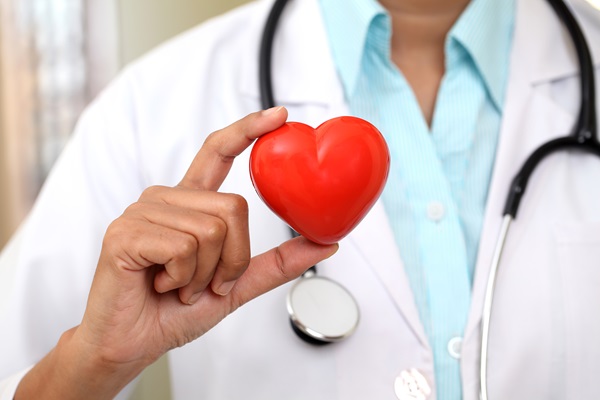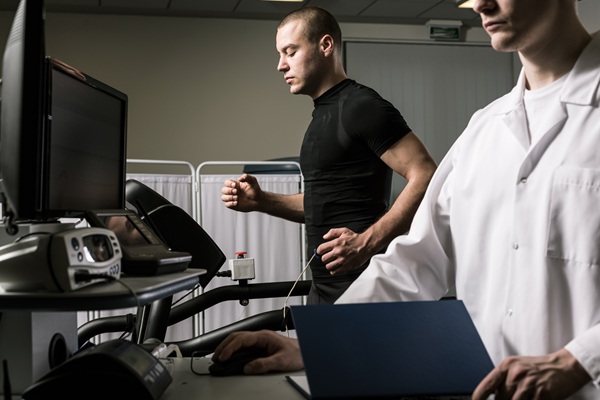How Does a Heart Specialist Diagnose Cardiovascular Diseases?

Heart specialists diagnose and treat diseases or conditions of the cardiovascular system. These medical practitioners, also known as cardiologists, have specialized knowledge and skills to assess and manage conditions affecting the heart and blood vessels. If you are concerned about diseases affecting your cardiovascular health, a heart specialist can diagnose and treat these issues and protect your long-term well-being.
How a heart specialist diagnoses cardiovascular diseases
A heart specialist may order different medical tests to determine the patient's heart condition and the most effective way to treat it. First, they will conduct a comprehensive medical history and physical examination. The cardiologist will ask the patient about their lifestyle, family history, pre-existing health conditions, and any symptoms they may be experiencing. Some common symptoms of cardiovascular issues include:
- Chest pain
- Shortness of breath
- Leg swelling
- Lef pain or ulcers due to vessel diseases
- High blood pressure
- An abnormal fast or slow heart rate
- Dizziness or fainting
- Family history of premature heart disease or cardiac death
This information can help the heart specialist identify potential risk factors and establish a baseline for future assessments.
After reviewing the patient's medical history, the cardiologist will conduct a thorough physical examination. They will evaluate the patient's vital signs, such as blood pressure, heart rate, and respiratory rate. They also listen to the heart and lungs using a stethoscope, searching for any irregularities or abnormal sounds that could indicate underlying health issues.
Common diagnostic tests for cardiovascular diseases
Blood tests
When the heart muscle has been damaged, as in a heart attack, the body releases substances into the blood. Blood tests measure the substances and indicate if — and how much of — the heart muscle has been damaged. Blood tests can also measure the level of other substances in the blood, such as fats, vitamins, and minerals. The blood sample will be taken from a vein in the patient's arm. The laboratory will then test it and send the results to the heart specialists to give them a clearer picture of the patient's heart and overall health.
Electrocardiogram (ECG or EKG)
The electrocardiogram (ECG or EKG) is one of the most common diagnostic tools that heart specialists use to determine if a patient has a cardiovascular disease. It is a non-invasive test that records the heart's electrical activity, provides information about the heart's rhythm, and detects any abnormalities. Changes in the ECG waveform can indicate conditions such as arrhythmias, coronary artery disease, or previous heart attacks.
Echocardiography
A heart specialist may recommend an echocardiogram for a more detailed assessment of the heart's structure and function. This imaging test uses an ultrasound and sound waves to visually represent the heart's chambers, valves, and surrounding structures. Echocardiography allows the heart specialist to identify abnormalities in the heart's size, shape, and movement, helping diagnose conditions such as heart failure, valve disorders, and congenital heart defects.
Coronary angiogram
A heart specialist may recommend a coronary angiogram, sometimes known as cardiac catheterization after a patient has a heart attack or angina (chest pain due to partially or fully blocked arteries). The specialist will insert a catheter into an artery in the patient's groin, arm, or wrist. They will then move the catheter up inside the artery until it reaches the heart and injects a special dye into the coronary arteries, taking an X-ray. The X-ray will show the specialist where and how much the coronary arteries are clogged or blocked and how well the heart is pumping.
Stress testing
Some patients only exhibit cardiovascular issues that may not be apparent at a resting heart rate. In these cases, the heart specialist may recommend a stress test. This type of ECG test involves monitoring the heart's activity while the patient engages in physical exercise or receives a medication that stimulates the effects of exercise. Stress testing evaluates the heart's response to an increased workload, revealing any potential problems with blood flow or underlying cardiac abnormalities.
Schedule a consultation
If you have been experiencing symptoms of cardiovascular disease, it is important to seek medical help. A heart specialist can identify, manage, and treat cardiovascular disease, helping safeguard the health of your heart and overall well-being. Call our office to schedule a consultation.
Request an appointment here: https://boyntonbeach.floridapremiercardio.com or call Florida Premier Cardiology at (561) 229-1411 for an appointment in our Boynton Beach office.
Check out what others are saying about our services on Yelp: Heart Specialist in Boynton Beach, FL.
Recent Posts
According to the Centers for Disease Control and Prevention, heart disease is the leading cause of death for adults in the United States. Therefore seeking chest pain treatment is crucial, especially for those at high risk for heart disease. However, chest pain can result from various health issues, so how does one know when it…
A cardiac stress test is a diagnostic tool to evaluate how well the heart performs under physical stress. Cardiologists use this test to detect underlying cardiovascular conditions, monitor treatment progress, or assess the risk of future heart complications. Cardiac stress tests are essential in the early detection and management of heart disease.A cardiac stress test…
Peripheral arterial disease affects blood flow in the arteries, most commonly in the legs. It develops due to plaque buildup in the arteries that causes them to narrow and restrict circulation, possibly leading to discomfort, difficulty walking, and other serious complications. Recognizing the symptoms early and exploring treatment options can help improve the quality of…
Receiving cardiovascular treatment is a critical step in managing heart health, but recovery and long-term are equally vital to ensure long-term wellness. Whether the treatment involves medication management, interventional procedures, or surgery, maintaining a relationship with the cardiologist and following their recovery guidelines is crucial. A structured follow-up plan allows patients to maintain the benefits…


